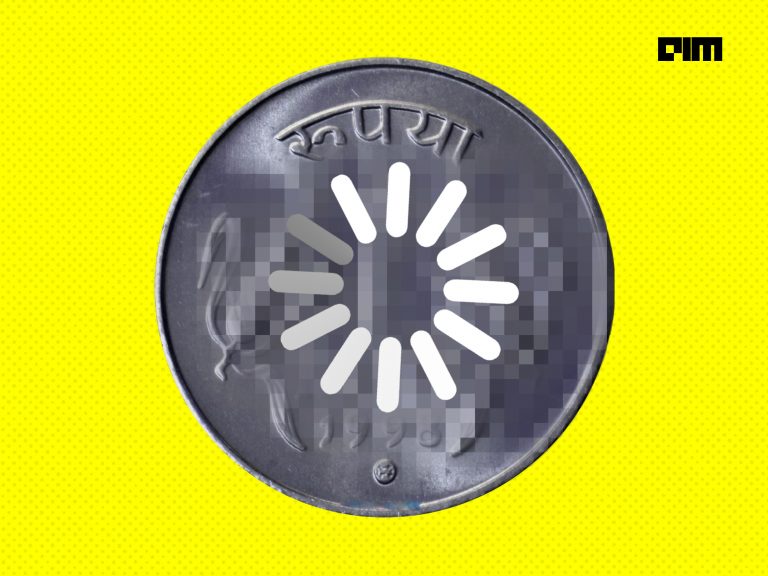Declan Ganley has been travelling the world and meeting many influential people, raising billions of dollars for his project. The founder, chairman and CEO of Rivada Space Networks, Ganley, an English-born Irish entrepreneur who is also a political activist, has been busy spreading the word on ‘outernet’.
The Outernet is Coming
“The outernet is not a branding term or a marketing thing. It is something that is distinct and separate from the internet, but is truly global,” said Ganley in an exclusive interaction with AIM, at the recently concluded AWS Summit held in Washington DC.
Ganley’s team is working on building the world’s most secure, fastest, global point-to-point low-latency orbital network to transmit data from and to every part of the world—a private space network for enterprise and government. Based out of Munchen, Germany, Rivada Space was set up in 2022.
Rivada has already signed a $10.3 billion MoU with many enterprise customers and even the US government. The company has partnered with AWS to leverage their infrastructure to meet Rivada’s needs.
“What we want to do is deploy a piece of global communications infrastructure that would be the fastest at a distance of 4000 km or more, have the lowest latency, and have the smallest attack surface on the network, and that would be truly point to multi point. From any point on the surface of the planet to any other point on the surface of the planet,” said Ganley.
‘The Goldilocks Zone’
The ambitious project is banking heavily on setting low-earth-orbit satellites, which are expected to be completed in 2028. Rivada is smartly choosing the optimal zone, which is neither too low nor too high for deploying these satellites.
“We can achieve dense global coverage with 600 satellites at 1050 kilometres, because you can see more from there,” said Ganley. “The Financial Times calls it the ‘Goldilocks zone’ for low earth orbit, because you’re not too high and you’re not too low, so you don’t need too many satellites, but you’re not so high that you lose in latency.”
The minimal number of satellites facilitates faster connections, reducing the number of hops needed to travel from one point to another. With each satellite serving as a router with four lasers on it, it acts as fibre optic cables, except that it travels through the vacuum of space. “Light through a laser in the near vacuum of space is 60% faster than light through a fibre. So you’ve got a faster connection, because you don’t have 1000s of satellites,” said Ganley.
Big Players Are Around the Corner
What Rivada is attempting to achieve is something SpaceX and Amazon have already heavily invested in via Starlink and Project Kuiper, respectively. Last year, Amazon completed the tests for an optimal mesh network in low-earth orbits with infrared lasers, similar to Ravida’s mission.
The difference, however, lies in logistics. Amazon has launched over 3000 satellites into an orbit of 590 to 630 km. On the other hand, SpaceX is in a bigger league, with over 5000 satellites aiming to reach a constellation of 42,000.
Early Believers of Generative AI
While the company works with space tech, generative AI has been a prominent player at Rivada. Ganley saw generative AI as something that would be important before it became fashionable.
“If you look at Rivada’s patent portfolio, you will find a very early patent for generative AI, which has been awarded, and not a pending patent. It’s from two years ago, and has been through the whole evaluation [process],” he said.
Rivada’s early patents pertains to utilising generative AI for managing obfuscation masking, effectively enhancing security in wireless communication networks, including satellite networks. It focuses on leveraging generative AI techniques to obscure traffic patterns, thereby adding an additional layer of security to ensure robust confidentiality and integrity in data transmission.
Treads India Carefully
While Rivada looks to capture the global market, India is on the list too. However, the company is carefully treading the route of collaboration. The company is working towards obtaining market licences in India.
“We are not going to do anything in India without going very carefully and working with the regulator in India. There will be no surprises,” said Ganley.
He also assured in abiding by the rules of the Indian government, and guaranteeing data sovereignty, residency and security to allow any enterprise or government entity in India to have total possession of its data at all times.
The CEO was also optimistic about the country turning this technology around to its best use. “If I was to talk about economies, to say, who do I think would be able to exploit this in the shortest period of time to really get this and turn this to their advantage? I think the Indian economy is extremely well positioned to do that. I would say, even South Korea,” said Ganley.
Revealing his personal side, Ganley believes in the “mission” as a crucial factor that gets him going. “Mission, the mission, the mission. I think about this, like we’re building a piece of global infrastructure that everybody thinks is a game changer. They should, and I like that,” he concluded.

































